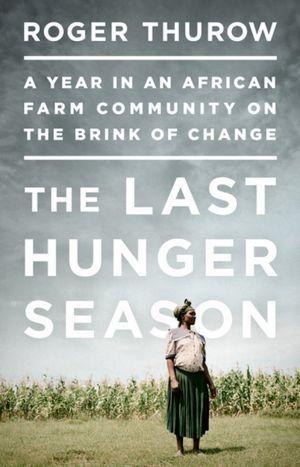We met at the Alexander House for dinner and discussion on the book The Last Hunger Season by Roger Thurow.
Book description from Amazon.com:
At 4:00 am, Leonida Wanyama lit a lantern in her house made of sticks and
mud. She was up long before the sun to begin her farm work, as usual. But this
would be no ordinary day, this second Friday of the new year. This was the day
Leonida and a group of smallholder farmers in western Kenya would begin their
exodus, as she said, “from misery to Canaan,” the land of milk and honey.

Africa’s smallholder farmers, most of whom are women, know misery. They
toil in a time warp, living and working essentially as their forebears did a
century ago. With tired seeds, meager soil nutrition, primitive storage
facilities, wretched roads, and no capital or credit, they harvest less than
one-quarter the yields of Western farmers. The romantic ideal of African
farmers––rural villagers in touch with nature, tending bucolic fields––is in
reality a horror scene of malnourished children, backbreaking manual work, and
profound hopelessness. Growing food is their driving preoccupation, and still
they don’t have enough to feed their families throughout the year. The
wanjala––the annual hunger season that can stretch from one month to as
many as eight or nine––abides.
But in January 2011, Leonida and her neighbors came together and took the
enormous risk of trying to change their lives. Award-winning author and world
hunger activist Roger Thurow spent a year with four of them––Leonida Wanyama,
Rasoa Wasike, Francis Mamati, and Zipporah Biketi––to intimately chronicle their
efforts. In The Last Hunger Season, he illuminates the profound
challenges these farmers and their families face, and follows them through the
seasons to see whether, with a little bit of help from a new social enterprise
organization called One Acre Fund, they might transcend lives of dire poverty
and hunger.
The daily dramas of the farmers’ lives unfold against the backdrop of a
looming global challenge: to feed a growing population, world food production
must nearly double by 2050. If these farmers succeed, so might we all.
 When an infected bolt of cloth carries plague from London to an isolated
village, a housemaid named Anna Frith emerges as an unlikely heroine and healer.
Through Anna's eyes we follow the story of the fateful year of 1666, as she and
her fellow villagers confront the spread of disease and superstition. As death
reaches into every household and villagers turn from prayers to murderous
witch-hunting, Anna must find the strength to confront the disintegration of her
community and the lure of illicit love. As she struggles to survive and grow, a
year of catastrophe becomes instead annus mirabilis, a "year of
wonders."
When an infected bolt of cloth carries plague from London to an isolated
village, a housemaid named Anna Frith emerges as an unlikely heroine and healer.
Through Anna's eyes we follow the story of the fateful year of 1666, as she and
her fellow villagers confront the spread of disease and superstition. As death
reaches into every household and villagers turn from prayers to murderous
witch-hunting, Anna must find the strength to confront the disintegration of her
community and the lure of illicit love. As she struggles to survive and grow, a
year of catastrophe becomes instead annus mirabilis, a "year of
wonders."
